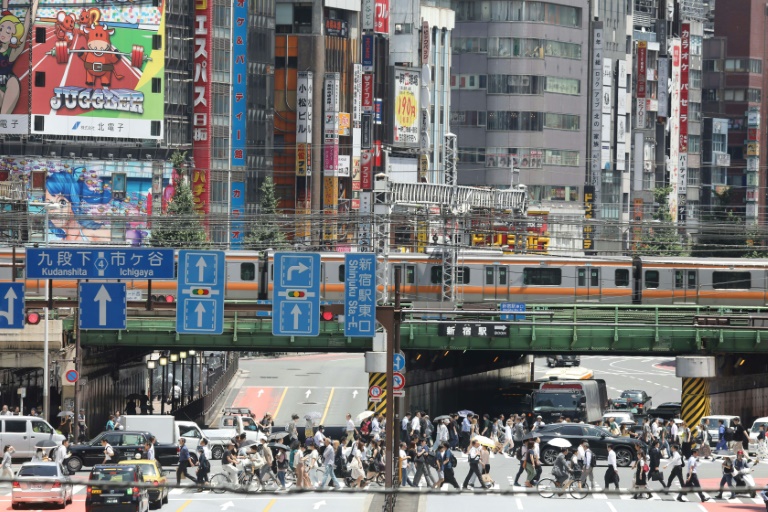
With hands-on exhibitions for children and a world-record attempt, Tokyo Sunday marked one year until the 2020 Paralympic Games that organizers hope can change outdated attitudes towards disabled people in Japan.
The Tokyo Paralympics, which run from August 25 to September 6, will be the first time a city has twice hosted the Games after the previous edition in 1964.
But the 2020 version will be a far cry from the event 55 years ago. Then, a mere 378 part-time athletes from 21 countries competed in nine sports squeezed into less than five days of action.
Next year’s event is expected to be 10 times bigger, with around 4,400 professional athletes showcasing their skills in 21 disciplines and competing for more than 500 medals.
In a bid to raise awareness, most of the sport will be televised live in Japan with “the largest coverage ever in the history of the Paralympics,” according to the head of the Japanese Paralympic Committee Yasusushi Yamawaki.
Like the Olympics, Tokyo has generally won praise for its Paralympics preparations but concerns remain about holding a top-class sports event during the blisteringly hot summer in the Japanese capital.
“I couldn’t be happier with the preparations so far. With one year to go, we’re totally on schedule, on track,” International Paralympic Committee chief Andrew Parsons told AFP in an interview to mark the one-year milestone.
But test events have highlighted difficulties with heat and water quality, with the swimming leg of the paratriathlon scrapped after double the permitted levels of bacteria were discovered in the Tokyo Bay area venue.
An additional Paralympic-specific issue has also arisen with only around half of the required accessible hotel rooms available for disabled coaches, media and support staff.
Parsons said this was his “biggest concern” and admitted that the hotel problem “may affect the Games and it may affect the Games experience of some of our clients.”
‘Blade jumper’
Tokyo mayor Yuriko Koike has repeatedly stressed that she will not consider Tokyo 2020 a success unless the Paralympics passes off smoothly.
With its rapidly ageing population becoming increasingly infirm, the city hopes to use the Paralympics to improve infrastructure for disabled people.
But beyond the infrastructure, many are looking for the Paralympics to foster a change in attitude towards disabled people in Japan, which Parsons described as “over-protective.”
For example, despite an efficient accessible transport system, “you don’t see persons with disabilities moving around because there is a cultural barrier. There is an expectation that they should stay at home,” said the IPC chief.
The lack of wheelchair-friendly hotels has arisen mainly because disabled Japanese are not expected to travel, he added.
“Blade jumper” Markus Rehm, a German long jumper who regularly out-jumps able-bodied competitors and has won three Paralympic golds, is relishing the chance to alter the Japanese mindset.
At an unofficial exhibition event in Tokyo, Rehm broke his own world record of 8m48 — a distance that would have won Olympic gold at the last three Olympics — jumping 8m50.
“The opportunity to win Gold here is highly exciting but what is more exciting is the chance to change Japanese society forever,” said Rehm.
“You don’t see many Japanese people with disabilities on the street and if I and my fellow Paralympians can empower them, that would be on a par with a Gold medal.”
Image: AFP / Ludovic MARIN Tokyo hopes to use the Paralympics to improve infrastructure for disabled people




